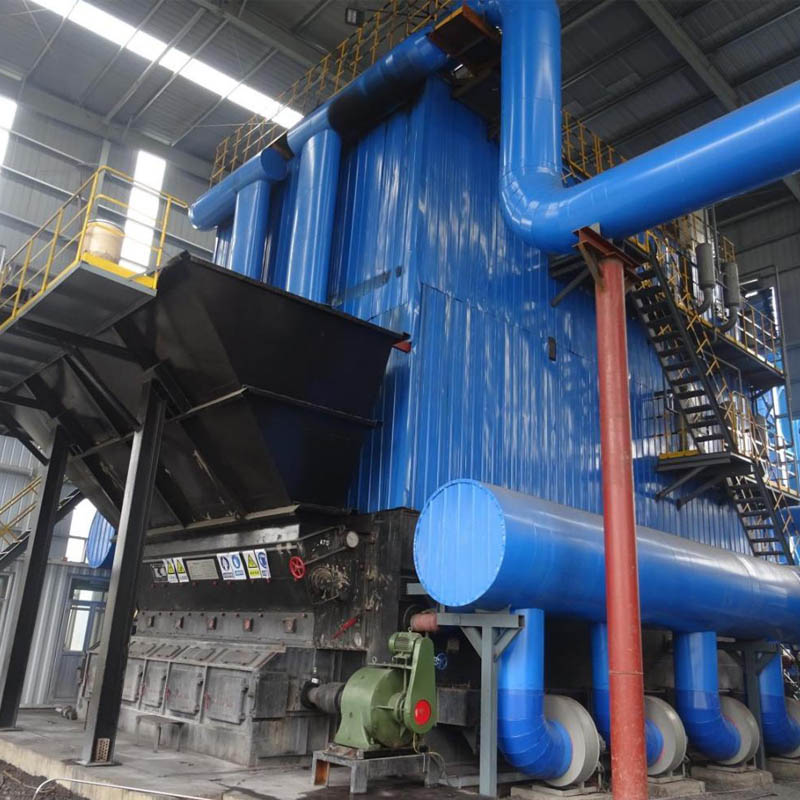
Nov . 30, 2024 09:56 Back to list
Improving Efficiency in Industrial Steam Boiler Operations and Performance
Understanding Industrial Steam Boiler Efficiency
Industrial steam boilers play a critical role in various industries, providing steam that is essential for processes such as heating, power generation, and sterilization. However, the efficiency of these boilers can significantly impact operational costs and environmental sustainability. Therefore, understanding and improving industrial steam boiler efficiency is crucial for industries looking to reduce expenses and adhere to environmental regulations.
What is Boiler Efficiency?
Boiler efficiency is defined as the ratio of useful energy output to the total energy input. It is usually expressed as a percentage. For steam boilers, efficiency measures how effectively the boiler converts the fuel's energy into steam energy. High efficiency means that more of the fuel's energy is being converted into steam, while low efficiency indicates significant energy losses. Boiler efficiency can be affected by factors such as fuel type, boiler design, operational practices, and maintenance efforts.
Factors Affecting Boiler Efficiency
1. Heat Losses A significant percentage of energy loss in steam boilers occurs due to heat losses through flue gases, radiation, and uninsulated surfaces. Proper insulation and the efficient design of heat exchangers can mitigate these losses.
2. Combustion Efficiency The efficiency of the combustion process is crucial for overall boiler efficiency. Improper air-to-fuel ratios can lead to incomplete combustion, resulting in unburned fuel and increased emissions. Technologies like oxygen trim control can optimize the combustion process, ensuring that the right amount of air is mixed with the fuel for complete combustion.
3. Water Quality The quality of feedwater can also affect boiler efficiency. Impurities in the water can lead to scaling and corrosion inside the boiler, reducing heat transfer and causing energy losses. Regular water treatment and monitoring are essential to maintain water quality and prevent such issues.
industrial steam boiler efficiency

4. Operational Practices The way a boiler is operated can greatly influence its efficiency. Operators should be trained to monitor boiler performance and adjust operational parameters accordingly. Regularly scheduled maintenance to clean burners, check insulation, and inspect for leaks can help sustain high efficiency.
5. Advanced Technologies Modern industrial boilers are increasingly being equipped with advanced technologies to enhance efficiency. Condensing boilers, for example, capture the heat from flue gases that would otherwise be expelled and utilize it to preheat incoming feedwater. This process can significantly increase overall efficiency.
Measuring Boiler Efficiency
The efficiency of an industrial steam boiler can be determined using different methods, including the Direct Method and the Indirect Method. The Direct Method calculates efficiency based on the input and output energy, while the Indirect Method considers all the heat losses through various channels. Each method has its merits, and a thorough understanding of both can help in assessing and improving boiler performance.
Economic and Environmental Benefits
Improving industrial steam boiler efficiency not only leads to cost savings but also has a positive impact on the environment. Higher efficiency means less fuel consumption, which directly correlates to lower greenhouse gas emissions and a reduced carbon footprint. Many companies that focus on enhancing boiler efficiency find they can also meet increasing regulatory demands focused on sustainability and emissions reductions.
Conclusion
In conclusion, understanding industrial steam boiler efficiency is vital for businesses that rely on steam generation for their operations. By accounting for factors that influence efficiency—such as heat losses, combustion efficiency, water quality, and advanced technologies—industries can enhance their boiler performance significantly. The investment in improving boiler efficiency not only pays off in reduced operational costs but also supports broader environmental goals, making it a win-win for both business and nature. As technology progresses, the potential for achieving even greater efficiencies continues to grow, paving the way for more sustainable industrial practices.
-
High-Efficiency Commercial Oil Fired Steam Boiler for Industry
NewsJul.30,2025
-
High-Efficiency Biomass Fired Thermal Oil Boiler Solutions
NewsJul.30,2025
-
High Efficiency Gas Fired Thermal Oil Boiler for Industrial Heating
NewsJul.29,2025
-
High-Efficiency Gas Fired Hot Water Boiler for Sale – Reliable & Affordable
NewsJul.29,2025
-
High Efficiency Biomass Fired Hot Water Boiler for Industrial and Commercial Use
NewsJul.29,2025
-
High-Efficiency Biomass Fired Hot Water Boiler for Industrial Use
NewsJul.28,2025
Related PRODUCTS






















